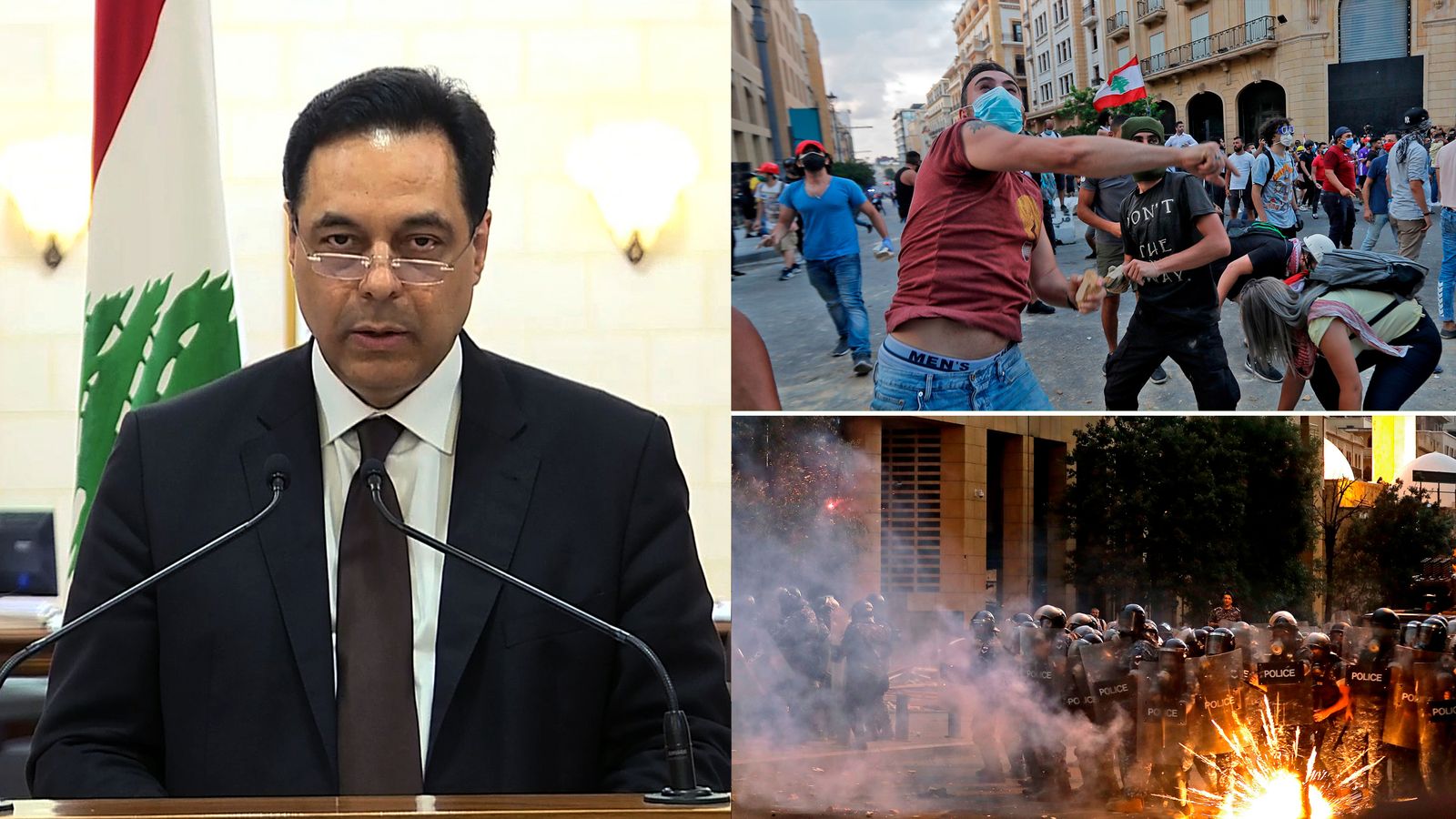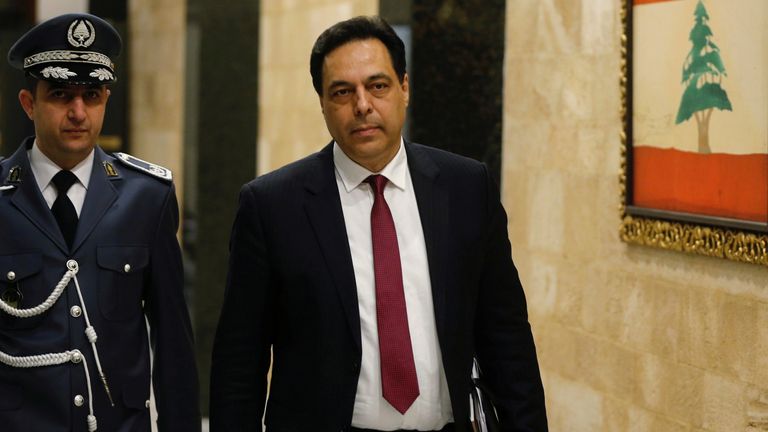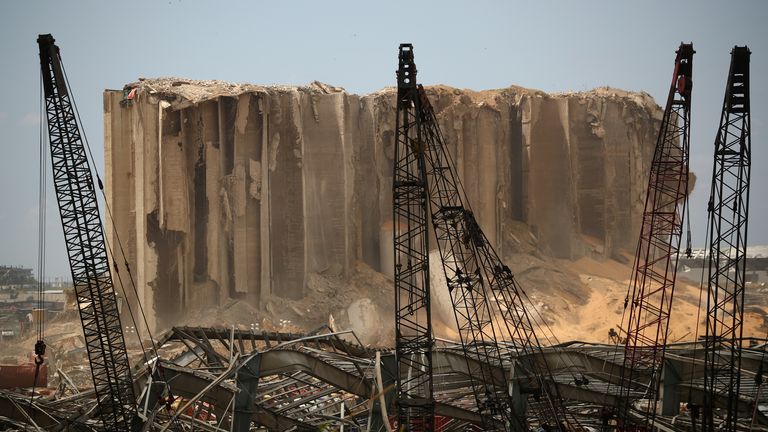Lebanon’s Prime Minister Hassan Diab and the country’s entire government has resigned after the deadly Beirut blast that killed at least 160 people.
In a brief televised speech, Mr Diab said he is taking “a step back” so he can stand with the people “and fight the battle for change alongside them”.
He said: “I declare today the resignation of this government. May God protect Lebanon.”
He repeated the last phrase three times.
Mr Diab also said “we are with the people in calling for trying those responsible for this crime” as he spoke on Monday evening.
Demonstrators had demanded political change after an explosion in Beirut killed more than 160 people and injured around 6,000 last week.
Lebanon’s health minister Hamad Hassan had earlier confirmed the government had resigned when he spoke to reporters after a cabinet meeting on Monday.
The cabinet has been under increasing pressure after several ministers quit or expressed their intention to step down in recent days.
Mr Hamad said: “The whole government resigned.”
Mr Diab’s cabinet now assumes a caretaker role until a new government is formed.
Protests had been planned for outside the government headquarters to coincide with the cabinet meeting.
Justice minister Marie Claude Najm quit earlier on Monday, according to the state-run National News Agency, citing the conduct of the government in the aftermath of last week’s blast.
A Lebanese judge today started questioning head of state security Major General Tony Saliba over the explosion, the news agency added.
It gave no further details but other generals are said to be scheduled to be questioned.
State security had compiled a report about the dangers of storing the material at the port and sent a copy to the offices of the president and prime minister on 20 July.
An investigation is focused on how the ammonium nitrate came to be stored at the port and why nothing was done about it.
About 20 people have been detained over the blast, including the head of Lebanon’s customs department and his predecessor, as well as the head of the port.
Dozens of people have been questioned, including two former cabinet ministers, according to government officials.
Public outrage has grown since the deadly blast which destroyed much of the city, reducing buildings to rubble and leaving hundreds of thousands homeless.
Losses from the explosion are estimated to be between £8bn to £12bn and nearly 300,000 people were left homeless in the immediate aftermath.
Demonstrators have blamed the disaster squarely on corruption and neglect from the country’s long-entrenched ruling class.
Protesters clashed with security forces over the weekend, who fired tear gas at demonstrators.
:: Listen to the Daily podcast on Apple Podcasts, Google Podcasts, Spotify, Spreaker
It is believed last week’s explosion was caused by 2,750 tonnes of ammonium nitrate – used as a fertiliser and in explosives – which was left in a warehouse for six years.
Port officials involved in storing or guarding the chemical since 2014 have been placed under house arrest, as the disaster is investigated.
Angry protesters have held rallies on the streets – clashing with security forces and blaming politicians for the blast – demanding political change.
Ms Najm, who was sprayed with water and verbally attacked last week while visiting a damaged area, was the third minister to resign before it emerged the government had stepped down.
Analysis: This resignation comes at a dangerous moment
By Zein Ja’far, Middle East news editor in Beirut
The government’s resignation has been on the cards since even before the horrific explosion at the Beirut port that killed at least 160 people and injured thousands.
It is expected Prime Minister Hassan Diab will stay on in a caretaker role until a new candidate is agreed upon.
But for the hundreds of thousands of people whose homes and lives were destroyed by last week’s explosion at a hangar containing 2750 tonnes of ammonium nitrate this won’t do much to ease their grief and anger.
For many across Lebanon the entire political system needs to be replaced.
They say it’s not specific governments past or present but the entire establishment in Lebanon that is to blame for crumbling infrastructure, widespread corruption and a sectarianism that has stifled progress and blocked real reform.
Even though French President Macron’s visit to Beirut last week was hailed by some in the capital as a success many are suspicious of foreign influence and worry the regional, and international, backers of various political parties will block any real change.
Lebanon faces difficult times ahead.
The country is already in its worst economic crisis that has seen millions of jobs lost, seen their salaries cut and savings disappear.
The political process to appoint a new prime minister and calls for early elections will take weeks to conclude and time is not something that most people in this country can afford right now. This is a dangerous moment for the nation.






